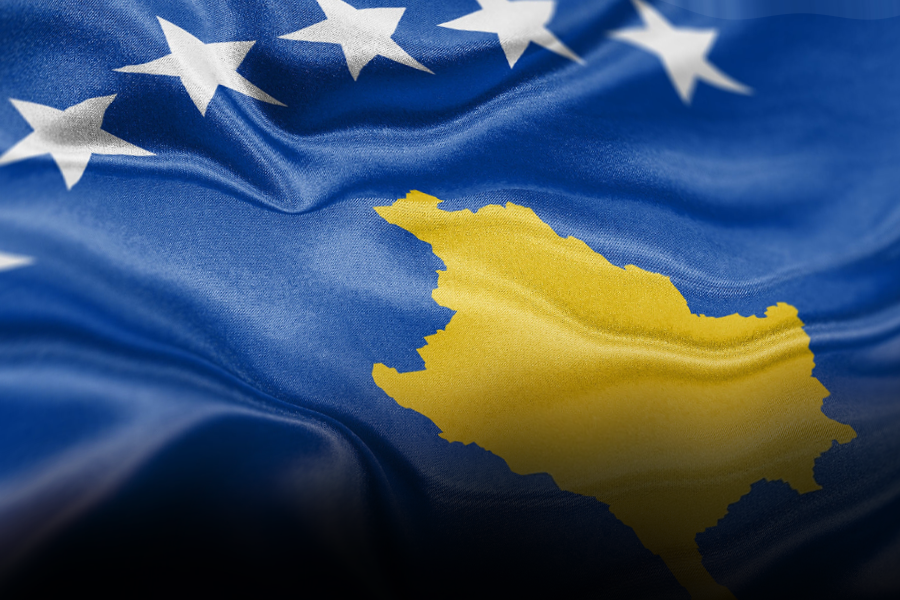
February 17, 2008 marked the end of Kosovo's long and difficult journey to statehood, as well as the beginning of other important processes for the youngest state in the world.
Kosovo's journey to independence had begun decades ago.
In 1989, Albanians were forcibly stripped of their autonomy within the former Yugoslavia, but they refused to submit to the then regime of Slobodan Milosevic.
Thus, Albanians began to create parallel systems in several areas. There were also protests.
During the war in Kosovo in 1998/99, over 800,000 Kosovo Albanians were forcibly expelled, over 13,000 civilians were killed, and over 6,000 people disappeared by force. More than 20,000 women were raped.
Over 1,600 people are still missing today.
The war ended in June 1999, after NATO began bombing Serbian military and police targets in March of that year.
The bombing lasted 78 days, Serbia capitulated and its forces were forced to leave Kosovo. Then, United Nations Security Council Resolution 1244 was adopted.
International peacekeeping troops were also deployed in Kosovo. Previously, the Kumanovo Technical Agreement was reached, which provided for the withdrawal of all Serbian forces, as well as the entry of NATO troops into Kosovo.
In 2005, the process for the final status of Kosovo began. Two years later, in 2007, the international special envoy for the status of Kosovo, Martti Ahtisaari, submitted to Pristina, and to Belgrade, his proposal for supervised independence for Kosovo.
This step led to the creation of the world's newest state.
On February 17, 2008, in the Assembly of Kosovo, in an extraordinary session, Kosovo was declared an independent, sovereign and democratic state.
The hour of 15:39 entered the history of Kosovo as the culminating moment of the great efforts for independence.
109 deputies, out of 120, participated in the session and signed the Declaration of Independence of Kosovo. Serbian deputies were not part of the historic session.
The Declaration of Independence was made by the then Prime Minister, Hashim Thaçi.
“We, the leaders of our people, democratically elected, through this Declaration declare Kosovo an independent and sovereign state. This declaration reflects the will of our people and is in full compliance with the recommendations of the United Nations Special Envoy, Martti Ahtisaari, and his Comprehensive Proposal for the Settlement of the Status of Kosovo,” the statement signed by the participating MPs read.
The United States, Great Britain, Albania, France and Turkey were among the first countries to recognize the state of Kosovo.Following a request from Russia, the United Nations Security Council held an emergency session on the afternoon of 17 February. The Secretary-General of the United Nations, Ban Ki-moon, issued a neutral statement urging all parties “to refrain from any action or statements that could endanger the peace, incite violence or endanger security in Kosovo or in the region”. Speaking on behalf of six countries – Belgium, Croatia, France, Germany, Italy and the United States – the Belgian ambassador expressed regret “that the Security Council cannot agree on a way forward, but this deadlock has been very clear for several months. Today’s events represent the end of a status process that has exhausted all the possibilities in pursuit of a negotiated outcome”.
On 18 February 2008, the EU Presidency announced that after a day of heated talks between foreign ministers, member states were free to decide individually whether to recognise Kosovo's independence. Most EU member states have recognised Kosovo, but Cyprus, Greece, Romania, Slovakia and Spain continue to refuse to do so.
Shortly before Kosovo's declaration of independence, the European Union approved the deployment of a 2,000-strong non-military EULEX Rule of Law mission to further develop Kosovo's police and justice sector.All twenty-seven EU member states approved EULEX's mandate, including the five EU countries that have not yet recognised Kosovo's independence.
Serbia, which continues to reject Kosovo's independence, did not agree with the historic act of declaring independence and took the matter to the International Court of Justice.
In 2010, the ICJ gave its seal to Kosovo's independence through an advisory ruling, reconfirming that the Declaration of Independence did not violate any article of International Law.
Kosovo today has its own destiny in its own hands. It has its own army and police.
The country is recognized by 117 countries around the world. However, Cyprus, Greece, Romania, Slovakia and Spain continue to not recognize it.
Serbia has not stopped its efforts to destabilize the country and endanger state sovereignty.
However, Kosovo is “forced” to dialogue with its northern neighbor in order to consolidate its position in the international arena.
So far, Kosovo has joined several international organizations, including the International Monetary Fund, the World Bank, the European Bank for Reconstruction and Development.
Also, the Olympic Committee, the FIFA World Football Federation and the European Football Federation.
However, the country is still not part of the United Nations, the European Union and the Council of Europe.
However, Kosovo has been placed on the world map thanks to its achievements in sports, art and culture.
From January 2024, citizens are be able to move freely within the European Union following a decision to abolish the visa regime.

